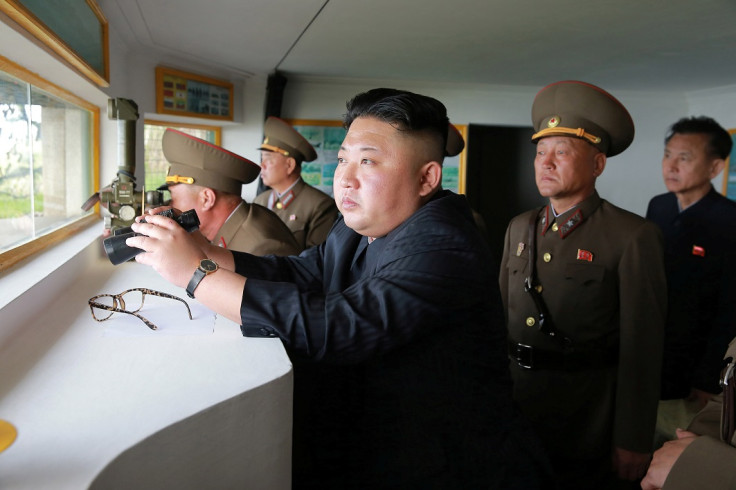Where in the Pacific would North Korea test a hydrogen bomb?
The rhetoric has taken a sharp turn in recent days between Kim Jong-un and Donald Trump.
Countries in the Pacific region near to North Korea are on high alert after Pyongyang warned it was considering a huge nuclear test somewhere in the area.
After a fierce war of words between Kim Jong-un and Donald Trump, the hermit nation brushed off any threat of sanctions and military action with the announcement they are considering testing "an unprecedented scale hydrogen bomb".
It is unknown if North Korea possesses the technology to back up their threats, but recent missile and nuclear tests suggest they are moving closer to being able to successfully place an atomic weapon onboard an intercontinental ballistic missile (ICBM).
Hamish de Bretton-Gordon, a former commanding officer of the British Armed Forces Joint Chemical Biological Radiological Nuclear (CBRN) Regiment, told IBTimes UK Pyongyang's latest plans are the "logical next step" for a regime intent on flexing its military muscle.
For many years the North Koreans oversaw unreliable missile tests. The country's sudden recent successes have caught the world off-guard. "The worrying thing is that they seem to be a couple years ahead of where we thought they were," Bretton-Gordon said.
Kim Jong-un, in a rare personal statement on Friday 22 September, said: "I will surely and definitely tame the mentally deranged US dotard with fire. Action is the best option in treating the dotard who, hard of hearing, is uttering only what he wanted to say."
This came just days after Trump threatened to "totally destroy" North Korea if it continued with its nuclear weapons development.
If an H-bomb is tested in the Pacific, a nervous world will be watching very closely. "If it works, and it is reasonable to assume that they can place an atomic bomb onto a missile, then a red line will have to be drawn, particularly if it is a hydrogen bomb," Bretton-Gordon said.
Any test would be illegal under international law. If a test was carried out, it would almost certainly be happen over a patch of international waters and at little or short notice.
It would give North Korea's opponents little opportunity to intercept or prevent the ICBM, unless the missile was aimed at waters or land around Japan, Guam or the mainland US, all stated targets of the regime.
Asked what Pyongyang crossing the red line could mean, Bretton-Gordon said the most likely response from the Trump administration would be a "full military option".
But he warned the consequences of this would be "horrific" and must be "avoided at all costs". Crucially, North Korea, with its history of unreliable military tests, would have to prove that the doomsday technology it possesses actually works.
"If it goes wrong, then the world will be able to see where he is in terms of his nuclear capabilities," he said.

© Copyright IBTimes 2025. All rights reserved.




















